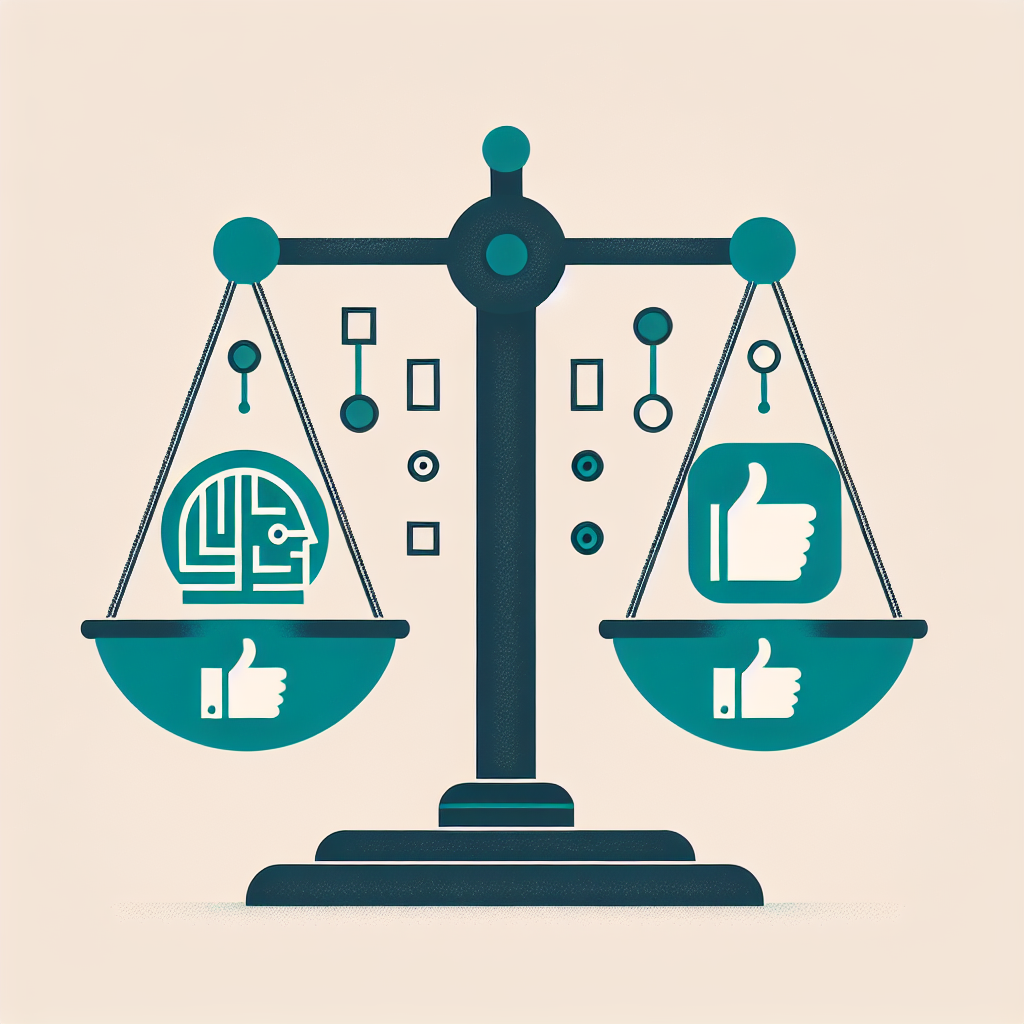Artificial intelligence (AI) has revolutionized the way we interact with technology, including social media platforms. From personalized recommendations to content moderation, AI plays a crucial role in shaping our online experiences. However, as AI becomes more integrated into social media, questions about ethics and privacy have come to the forefront. Where do we draw the line when it comes to AI in social media? How can we ensure that AI is used ethically and responsibly? In this article, we will explore these questions and delve into the complex world of AI ethics in social media.
AI in Social Media: The Good, The Bad, and The Ugly
The use of AI in social media has brought about many benefits. AI algorithms can analyze large amounts of data to personalize user experiences, recommend content, and detect and remove harmful or inappropriate content. For example, AI-powered algorithms can analyze user behavior to recommend products or services that are relevant to their interests, making the user experience more enjoyable and engaging. Additionally, AI can help social media platforms detect and remove fake accounts, hate speech, and other harmful content, creating a safer and more positive online environment.
However, the use of AI in social media also raises ethical concerns. For example, AI algorithms can inadvertently perpetuate biases and discrimination. If the data used to train these algorithms is biased, the AI system may make decisions that reflect and reinforce those biases. This can lead to discriminatory outcomes, such as showing certain users more ads for high-paying jobs based on their gender or race, or suppressing content from marginalized communities. As a result, AI can perpetuate inequality and harm vulnerable populations.
Another ethical concern is the issue of privacy. AI algorithms can collect and analyze vast amounts of user data, raising concerns about user privacy and data security. Social media platforms may use AI to track user behavior, preferences, and interactions, which can be used to create detailed profiles of individuals. This data can then be used for targeted advertising, content recommendations, and other purposes. However, this level of data collection and analysis raises questions about consent, transparency, and user control over their personal information.
Where Do We Draw the Line?
Given the complex ethical considerations surrounding AI in social media, where do we draw the line? How can we ensure that AI is used ethically and responsibly in this context? One approach is to establish clear guidelines and regulations for the use of AI in social media. For example, policymakers can create laws that require transparency and accountability in AI algorithms, ensuring that users are informed about how their data is being used and have control over their personal information. Additionally, social media platforms can implement ethical guidelines and best practices for the development and deployment of AI systems, such as conducting bias audits and ensuring diversity in data sets.
Another approach is to promote ethical AI design principles, such as fairness, transparency, accountability, and privacy. By incorporating these principles into the design and development of AI systems, social media platforms can ensure that their algorithms are ethical and respect user rights. For example, platforms can implement mechanisms to detect and mitigate bias in AI algorithms, provide explanations for algorithmic decisions, and give users control over their data. By prioritizing ethics and user trust, social media platforms can build more responsible and sustainable AI systems.
FAQs
Q: How can social media platforms ensure that AI algorithms are fair and unbiased?
A: Social media platforms can ensure that AI algorithms are fair and unbiased by conducting bias audits, diversifying data sets, and implementing mechanisms to detect and mitigate bias. Additionally, platforms can promote diversity and inclusion in their teams to ensure that different perspectives and experiences are represented in the development of AI systems.
Q: What are some examples of unethical uses of AI in social media?
A: Some examples of unethical uses of AI in social media include algorithmic bias, privacy violations, and the spread of misinformation. For example, AI algorithms that perpetuate biases or discriminate against certain groups can harm marginalized communities. Additionally, AI systems that collect and analyze user data without consent or transparency can violate user privacy rights.
Q: How can users protect their privacy and data on social media platforms?
A: Users can protect their privacy and data on social media platforms by reviewing and adjusting their privacy settings, limiting the amount of personal information they share online, and being cautious about the data they provide to platforms. Additionally, users can use privacy-enhancing tools, such as ad blockers and encryption, to protect their data from unauthorized access.
In conclusion, AI ethics in social media is a complex and evolving field that requires careful consideration and proactive measures to ensure that AI is used ethically and responsibly. By establishing clear guidelines, promoting ethical design principles, and prioritizing user trust and transparency, social media platforms can navigate the ethical challenges of AI in a digital age. As technology continues to advance, it is crucial that we continue to ask critical questions and hold ourselves accountable for the ethical implications of our actions. Only then can we build a more ethical and sustainable future for AI in social media.

